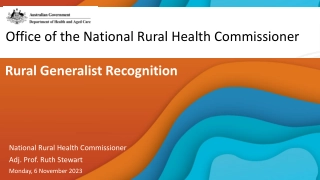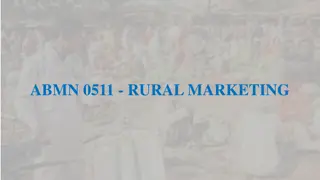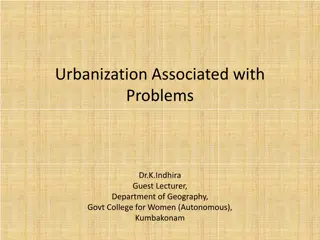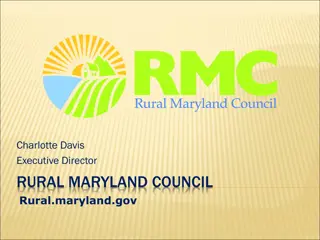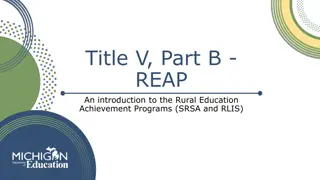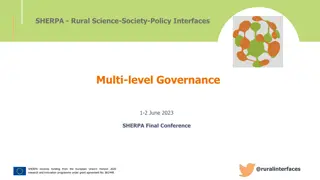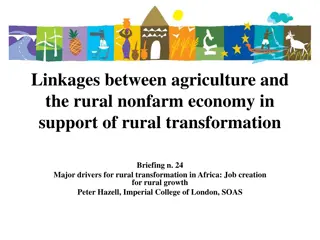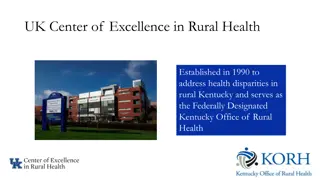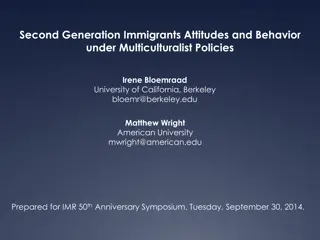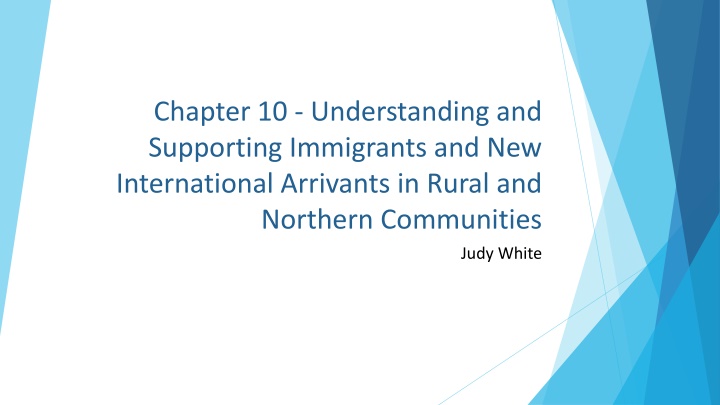
Supporting Immigrant Settlement in Rural and Northern Canada
This chapter delves into the historical context of newcomer settlement in rural and northern Canada, exploring the changing landscapes and challenges faced by immigrants. It highlights the role of social work in addressing these issues and offers insights into the practice options available to support newcomer populations. Key themes include the diverse experiences of immigrants, policy implications, and service delivery challenges within these communities.
Download Presentation

Please find below an Image/Link to download the presentation.
The content on the website is provided AS IS for your information and personal use only. It may not be sold, licensed, or shared on other websites without obtaining consent from the author. If you encounter any issues during the download, it is possible that the publisher has removed the file from their server.
You are allowed to download the files provided on this website for personal or commercial use, subject to the condition that they are used lawfully. All files are the property of their respective owners.
The content on the website is provided AS IS for your information and personal use only. It may not be sold, licensed, or shared on other websites without obtaining consent from the author.
E N D
Presentation Transcript
Chapter 10 - Understanding and Supporting Immigrants and New International Arrivants in Rural and Northern Communities Judy White
Introduction This chapter will discuss: A brief historical overview of Canada s newcomer settlement history. The changing landscape of rural and northern communities in Canada as a result of newcomer settlement in these locations. The role of social work in responding to the diverse challenges and opportunities facing these newcomer populations and their receiving communities. That social work practice in rural and northern areas offers an array of practice options for social workers: micro, mezzo, and macro.
Learning Objectives By the end of this chapter you will: Engage in critical reflection of newcomer settlement history in rural and northern Canada; Build knowledge of the complex, intersecting issues experienced by newcomer settlers in rural and northern areas; and Reflect on the implications for social work practice with newcomer settlers, in light of the Truth and Reconciliation Calls to Action (Truth and Reconciliation Commission of Canada, 2015).
Practice Area and/or the Population of Focus Immigrant/newcomer settlement in rural and northern Canada has survived despite the growth of industrialization and urbanization which led to the majority of immigrant settlers heading to larger centres such as Toronto, Vancouver, and Montreal (Patel et al., 2019). Provincial Nominee Programs (PNPs) and other policy and program developments have served to bolster settlement in smaller centres, northern, and rural communities across Canada, thereby increasing the diversity in terms of populations and needs. Newcomer settlement has had different impact on different groups of people and communities.
Overview of Policy and Service Delivery Issues The stories of life in northern and rural communities offer accounts of tremendous generosity and hope but also provide insight into the extent to which location away from major centres has posed a variety of challenges for newcomer setters and residents in these communities (Burnett et al., 2020; Kulig & Williams, 2011; Patel et al., 2019; Reid, 2019). These challenges include isolation, and unequal access to affordable public transportation, social services, health, education resources, systemic racism, discrimination, and xenophobia.
Overview of Policy and Service Delivery Issues Areas of concern and need include availability of resources and infrastructure, understanding and embracing cultural diversity, building trusting relationships, and the issue of social work in rural and northern communities in light of the Truth and Reconciliation Calls to Action. Social workers are therefore challenged to remember that a one size fits all will not work for newcomer settlers in rural and northern communities.
3 Levels of Social Work Practice Micro Engaging in direct micro practice within settlement agencies, health care, and the schools that newcomer children would be attending. Various communities now have Settlement Worker in School programs (SW1S) as well as social workers who provide a range of referral, support and mentorship services relevant to newcomer children and their families.
3 Levels of Social Work Practice Mezzo Social workers in settlement agencies, health, education, and other sectors may choose to engage in group work practice. This would be particularly useful for women who are survivors of abuse and violence; and would be a site where education about issues of violence and abuse could occur.
3 Levels of Social Work Practice Macro Social workers interested in macro practice could play a leadership role in bringing together various stakeholders to facilitate discussions and research about the development of services.
Conclusion Social workers are challenged to understand Canada's longstanding history of racism and the importance of open discussion focused on unraveling root causes in order to address equity and inclusion. Social workers have a role to play to build bridges between newcomers, residents, and others connected to these locations. The United Nations Declaration on the Rights of Indigenous Peoples, along with the Truth and Reconciliation Calls to Action, provides documents that social workers can use to facilitate new ways of building relationships and working with Indigenous peoples and Canadian peoples. Participating in ethical practice with newcomers in Canada s rural and northern communities calls on social workers to push themselves to be open to the forever changing and complex realities and contexts of these arrivants, settlers, and communities.
References Burnett, K., Sanders, C., Halperin, D., & Halperin, S. (2020). Indigenous peoples, settler colonialism, and access to health care in rural and northern Ontario. Health & Place, 66, 102445. Kulig, J. C., & Williams, M. (2011). Health in rural Canada. UBC Press. Patel, A., Dean, J., Edge, S., Wilson, K., & Ghassemi, E. (2019). Double burden of rural migration in Canada? Considering the social determinants of health related to immigrant settlement outside the cosmopolis. International Journal of Environmental Research and Public Health, 16(5), 678. https://res.mdpi.com/ijerph/ijerph-16- 00678/article_deploy/ijerph-16-00678.pdf Reid, S. (2019). The rural determinants of health: Using critical realism as a theoretical framework. Rural and remote health, 19, 5184. Truth and Reconciliation Commission of Canada. (2015). Truth and Reconciliation Commission of Canada: Calls to action.

